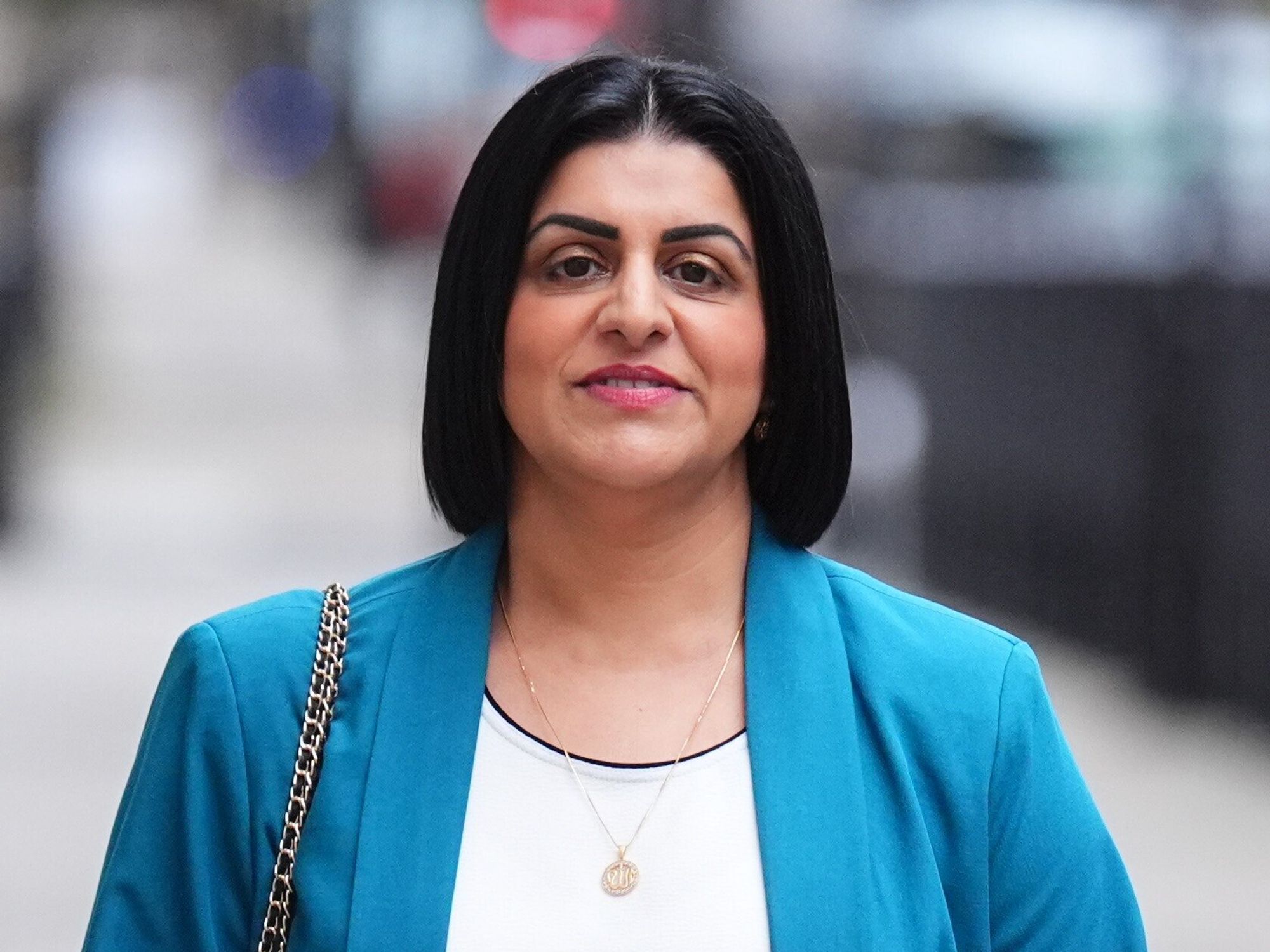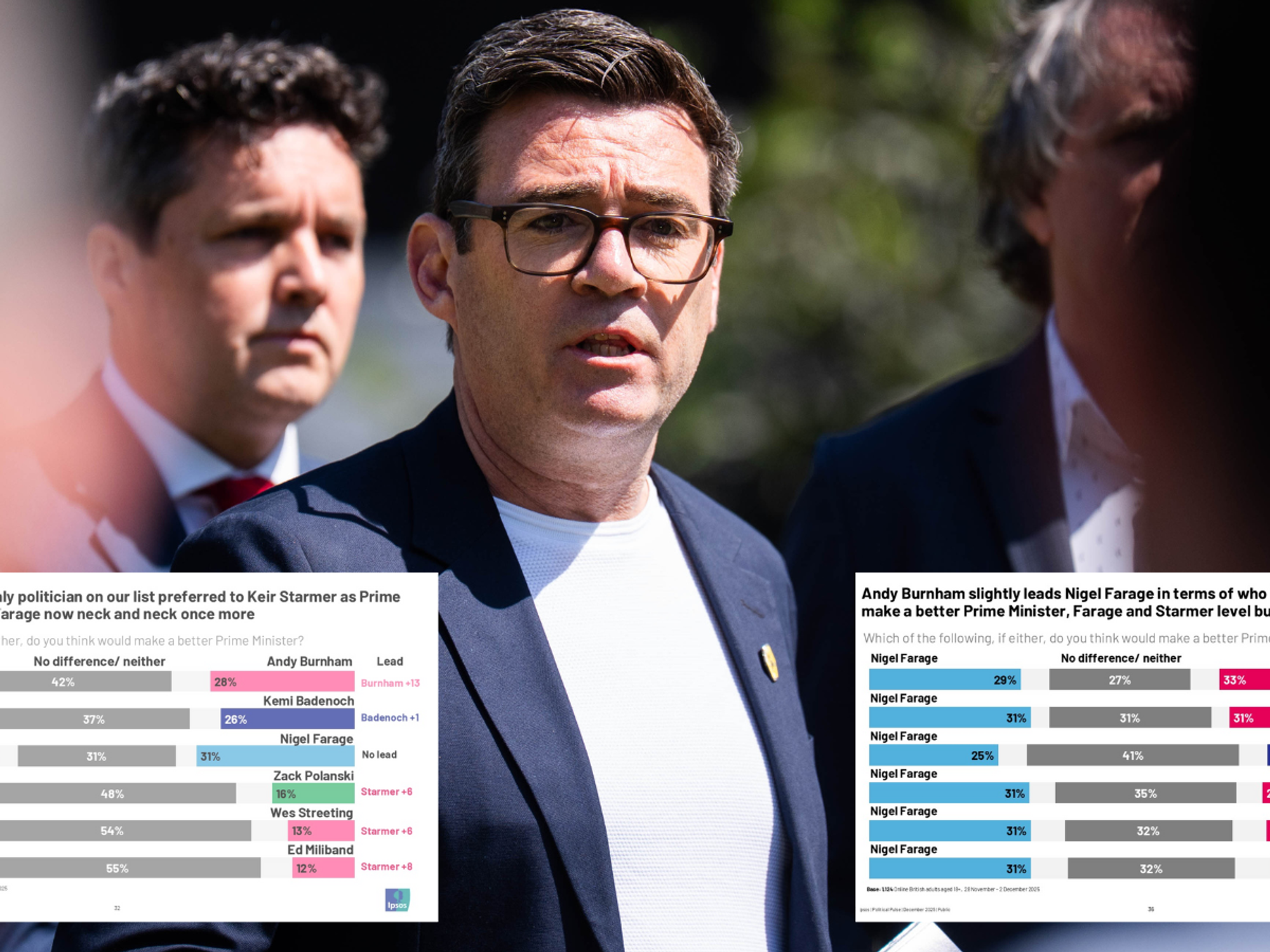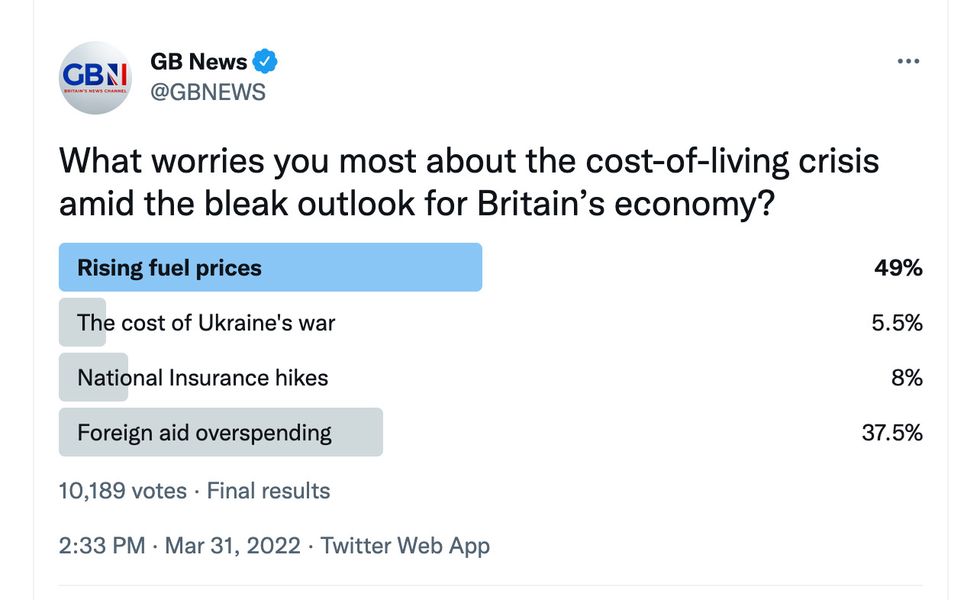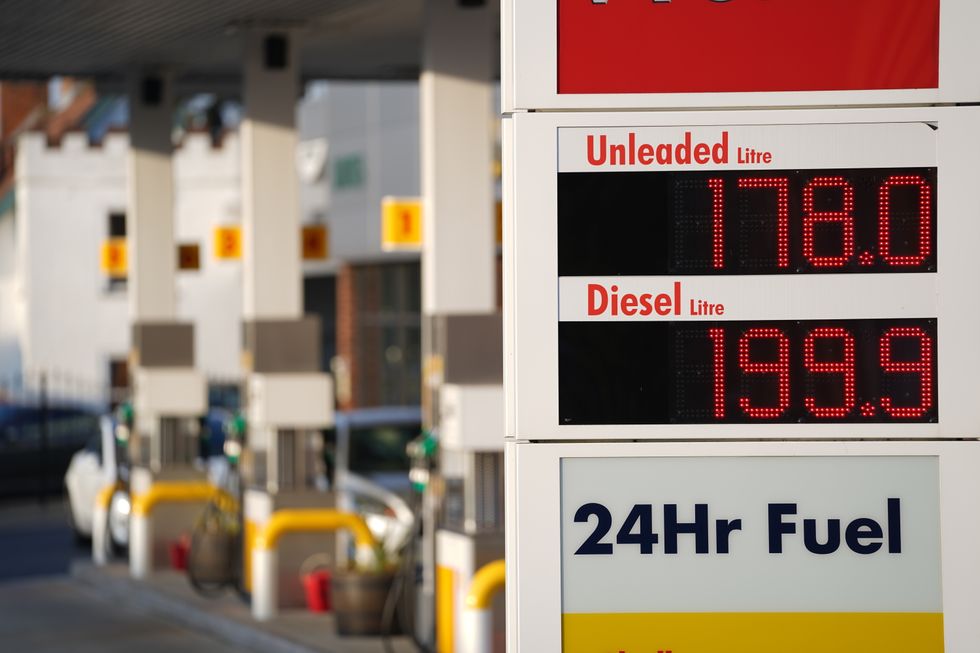Brits worried most about rising fuel prices and foreign aid spending, GB News poll finds
49 percent of GB News poll respondents cited rising fuel prices as their primary concern amid the country's bleak economic outlook
Don't Miss
Most Read
Latest
Rising fuel prices and overspending on foreign aid are the most concerning issues amid the cost-of-living crisis, thousands have said in a GB News poll.
The results come as energy bills are set to skyrocket due to today's 54 percent increase to Ofgem’s price cap.
But higher energy prices are not the only way households and businesses are going to feel the pinch.
49 percent of GB News poll respondents, cited rising fuel prices as their primary concern after being asked on Twitter: “What worries you most about the cost-of-living crisis amid the bleak outlook for Britain’s economy?”
GB News poll on Twitter asking: What worried you most about the cost-of-living crisis amid the bleak outlook for Britain's economy?
@GBNEWS / Twitter
A display sign showing unleaded petrol prices at 178.0 per litre and diesel prices at 199.9 per litre at a service station in Long Stratton Norfolk. Picture date: Thursday March 10, 2022.
Joe Giddens
Of the 10,189 people that voted, 37.5 percent said overspending on foreign aid, eight percent said National Insurance hikes and the remaining 5.5 percent said the cost of the Ukraine-Russia war.
In his Spring Statement, Chancellor Rishi Sunak said he was trying to shield lower earners from the impact of the forthcoming national insurance hike, slashed 5p off fuel duty and promised to cut income tax by 1p in 2024.
But many have said the measures don't go far enough in light of the country's bleak economic outlook deeply exacerbated by the Russia-Ukraine war.
Economic growth forecasts have been downgraded and were downgraded and inflation is set to reach its highest level for 40 years, leading to household disposable incomes falling by 2.2 percent per person in 2022-23.
The Office for Budget Responsibility (OBR) downgraded growth in gross domestic product – a measure of the size of the economy – from the 6 percent forecast for this year at the time of the Budget in October to 3.8 percent.
Next year’s growth forecast has been downgraded from 2.1 percent to 1.8 percent.













